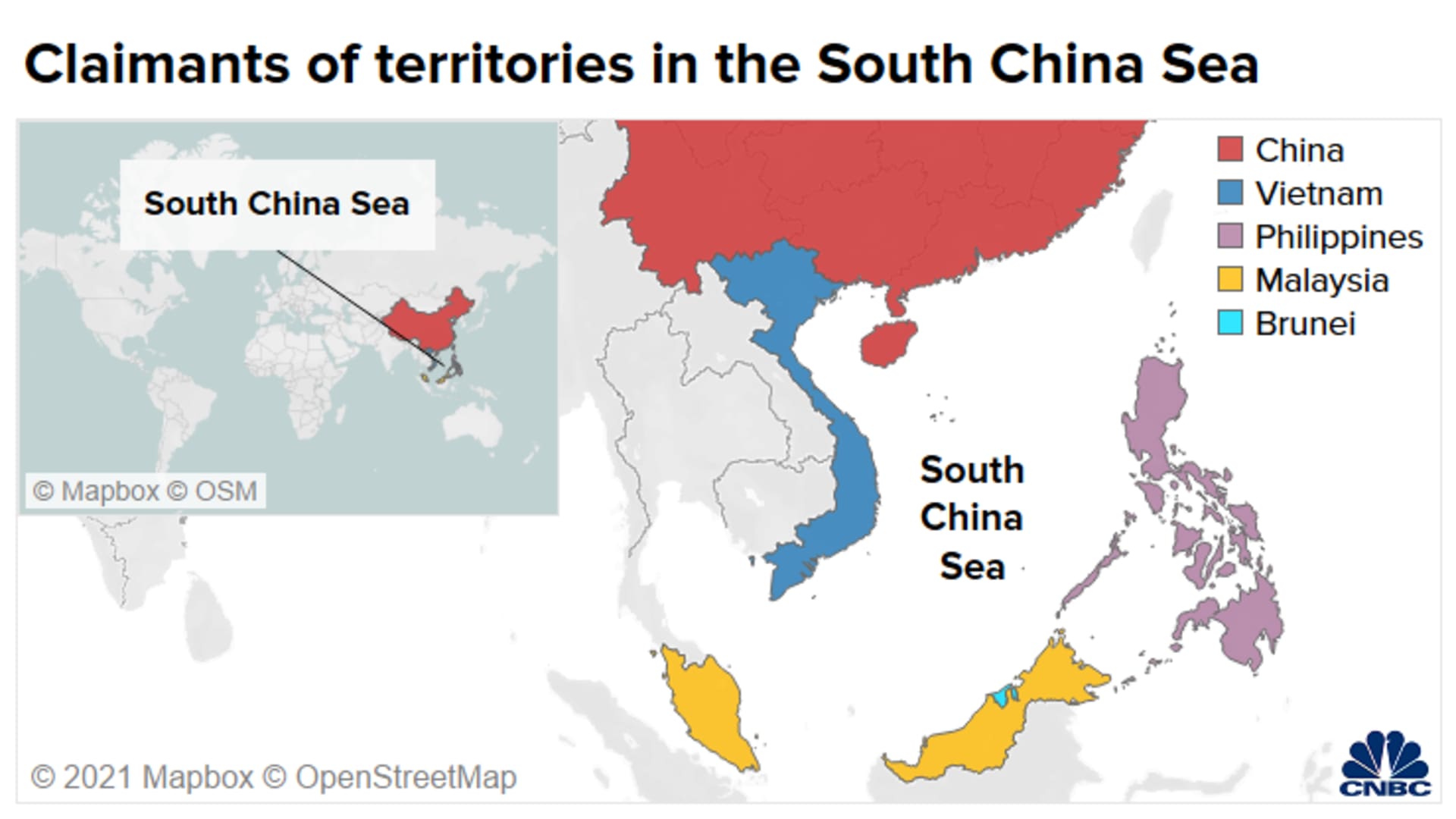
- Chinese Foreign Ministry Spokesman Wang Wenbin in a Tuesday statement urged the Philippines for "basic manners" and cautioned against "megaphone diplomacy."
- Philippine Secretary of Foreign Affairs Teodoro Locsin Jr. tweeted that China should "get the f--- out" as the two countries engaged in a war of words over the South China Sea.
- In several tweets since, Locsin apologized to Chinese State Councilor and Foreign Minister Wang Yi and said he was "provoked by the latest grossest territorial violation."
China called for "basic manners" and cautioned against "megaphone diplomacy" after Philippine Secretary of Foreign Affairs Teodoro Locsin Jr. lashed out at Beijing in an offensive tweet.
On Monday, Locsin told China in a tweet to "get the f--- out" as the two countries engaged in a war of words over the South China Sea. The secretary has been a vocal China critic in President Rodrigo Duterte's government and is known for his occasional blunt remarks.
In several tweets over the subsequent days, Locsin apologized to Chinese State Councilor and Foreign Minister Wang Yi and said he was "provoked by the latest grossest territorial violation." Meanwhile, Duterte's spokesman Harry Roque reportedly said the Philippine president has reminded officials that profanity has no place in diplomacy.
Get top local stories in Southern California delivered to you every morning. >Sign up for NBC LA's News Headlines newsletter.
Chinese Foreign Ministry Spokesman Wang Wenbin responded to Locsin's outburst in a Tuesday statement, saying that "facts have proven time and time again that megaphone diplomacy can only undermine mutual trust rather than change reality."
But Beijing also has a track record of firing insults at other countries.
Money Report
Such aggressive tactics by Chinese diplomats have in recent years increasingly played out on social media platforms such as Twitter, which is blocked on the mainland. Observers dubbed those tactics "wolf warrior diplomacy," taking after a series of hugely popular movies where Chinese fighters defeat adversaries globally.
South China Sea dispute
China and the Philippines have for years contested overlapping territorial claims in the South China Sea, a resource-rich waterway with a total area of about 1.4 million square miles where trillions in dollars of global trade pass.
Beijing has in the past year appeared more assertive in the disputed waters, leading Manila to protest on several occasions the presence of Chinese vessels in parts of the sea that are internationally recognized as belonging to the Philippines.

Beijing on Tuesday reiterated that Bajo de Masinloc — which it calls Huangyan Island — and its surrounding waters fall under China's jurisdiction.
Bajo de Masinloc, also known as Scarborough Shoal, is a chain of reefs in the South China Sea that lies around 120 nautical miles from the nearest Philippine coast and 470 nautical miles from the nearest coast of China.
China claims most of the South China Sea, based on what it says are nine dashes that delineate Chinese territory in historic maps. An international tribunal in 2016 dismissed the so-called nine-dash line as legally baseless — a ruling ignored by Beijing.






